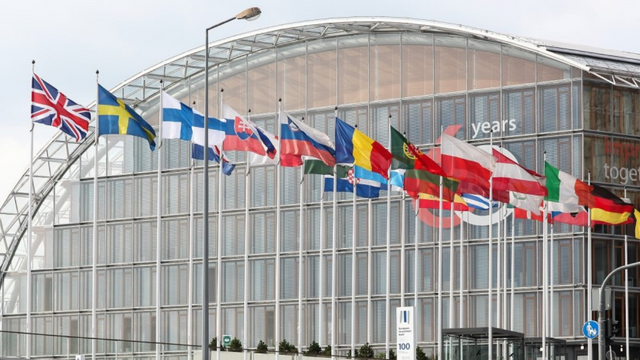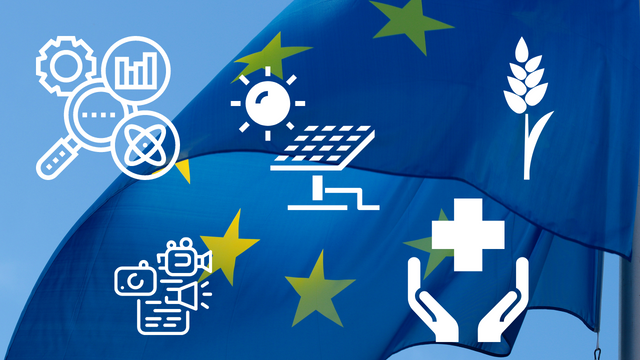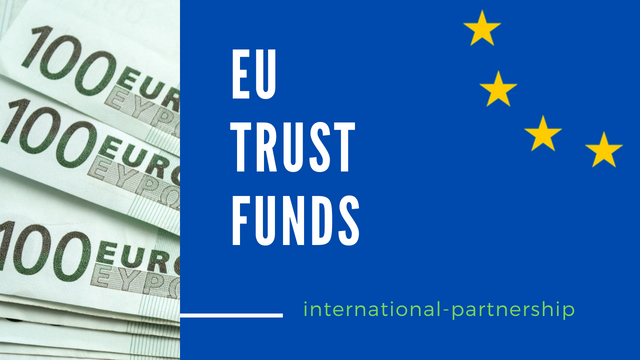Getting Funding
There are different types of EU funding:
- Financial instruments (loans, guarantees and equity)
- EU Programmes: Grants, Subsidies, Prizes
- Trust funds
- Procurements (public contracts)
Financial instruments
Financial instruments are measures of financial support provided on a complementary basis from the budget in order to address specific policy objectives of the European Union.
Such instruments may take the form of equity or quasi-equity investments, loans or guarantees, or other risk-sharing instruments, and may, where appropriate, be combined with grants.
Financial instruments can achieve:
- financial leverage - multiplying scarce budgetary resources by attracting private and public funds to support EU policy objectives
- policy leverage - incentivising entrusted entities and financial intermediaries to pursue EU policy objectives through alignment of interest
- institutional leverage - benefiting from the expertise of the actors involved in the implementation chain
In addition, these instruments, implemented in partnership with public and private institutions, address market failures in the provision of external financing (for example to small and medium sized enterprises, or SMEs) and avoid any crowding-out of private financing.
Grants
Grants are direct financial contributions from the European Union budget awarded by way of a donation to third-party beneficiaries (usually non-profit-making organisations) engaged in activities that serve EU policies. This expenditure is mostly subject to centralised management by the European Commission, either directly by its own departments or indirectly through EU agencies, executive agencies or national agencies.
Grants represent a major part of the European Union's expenditure and fall into two broad categories:
- grants that finance actions intended to help to achieve an objective that forms part of an EU policy
- operating grants that finance the operating expenditure of a body pursuing an aim of general European interest or an objective that forms part of an EU policy
Grants are based on the costs actually incurred by the beneficiaries for carrying out the activities in question, and the results of the action remain the property of the beneficiaries.
Subsidies
Subsidies are a big part of the funding provided by the European Agriculture Fund for Rural Development (EAFRD), offering, among other things, direct cash payments to farmers so they can bolster their income. Subsidies also aim to reduce economic and social disparity in the EU's poorest regions. Through the EU's Cohesion Fund, subsidies are awarded to help pay for infrastructure projects and protect the environment.
Trust funds
A trust fund is a pool funding mechanism, in which several donors jointly finance an action on the basis of commonly agreed objectives and reporting formats. Each EU trust fund has its own governing board, which decides on the use of the pooled resources. An EU trust fund acts collectively on behalf of the EU and all the contributors to its financing.
Information is available on existing EU trust funds and allocation of funds.
Prizes
A prize is a financial contribution given as a reward following a contest.
Through prizes, the EU institutions:
- recognise outstanding work and achievements
- induce investment - inducement prizes are intended to spur investment into a given direction and are mainly used by the Horizon Europe programme
Public procurement contracts
Public procurement is the purchase of services, supplies or works by a contracting authority (EU Institution or local administration in the Member State) via a public contract.
As a general rule, a public contract is clearly different from a grant:
- in the case of a contract, the contracting authority obtains a product or service it needs in return for payment
- in the case of a grant it makes a contribution either to a project carried out by an external organisation or direct to that organisation because its activities contribute to EU policy aims
If you are looking for public procurement contracts, please see our EU Policy Pages (general menu).
Access to Financial Instruments
|
A wide range of financial instruments is available: business loans, microfinance, guarantees and venture capital. Every year the EU supports more than 200 000 businesses.
|
EU Programmes
|
The EU has several different funding programmes (granats, subsides, prizes) that you may be able to apply for, depending on the nature of your business or project.
Consult the Page on EU BUDGET & FUNDS. |
EU Trust Funds
|
From 2013, European Commission to create and administer Union Trust Funds in the field of external action. These multi-donor trust funds are created for emergency, post-emergency or thematic actions. Trust funds are used as a financing mechanism to implement international cooperation and development measures, to respond to major challenges, such as the specific needs triggered by natural disasters, conflicts or significant pandemics.
|
Source: European Union, http://www.europa.eu/, 1998-2024
|
Brussels - Milano - Nice - Tokyo
|
eEuropa Belgium
Avenue Louise, 367 1050 Brussels BELGIUM Bld. Franck Pilatte, 19 bis
06300 Nice FRANCE YONO HOUSE 9-1 KAMIOCHIAI, SAITAMA-SHI, SAITAMA-KEN 〒 338-0001 JAPAN Via S. Veniero 6 20148 Milano ITALY |
All rights reserved - © Copyright eEuropa Belgium 2020-2024




